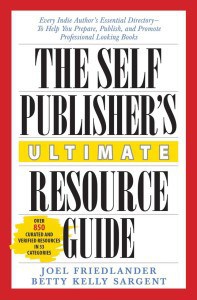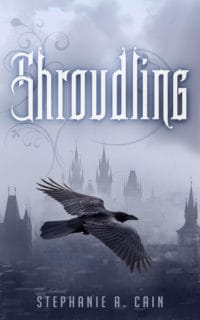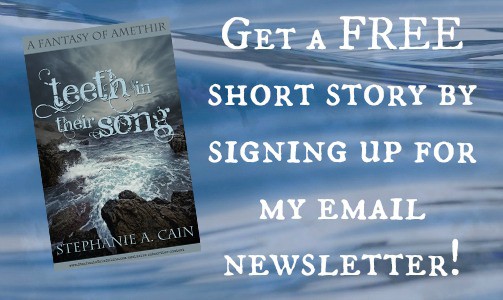I had the opportunity this week to review the Self-Publishers Ultimate Resource Guide (Amazon affiliate link) by Joel Friedlander and Betty Kelly Sargent. First off, I’ll say that I was given a free digital copy in exchange for a fair and honest review. But I’ll follow that up by saying that I think $7.99 is a good price for this resource, especially since the authors intend to keep updating this guide on a frequent basis. To quote the beginning of the book, “This book is a living document…We want your help to make it even better.” I think that makes it an even more valuable resource. How many times have you read a fantastic reference book, only to discover when you look at the websites it mentions that half of the resources are outdated? But Friedlander and Sargent are dedicated to making sure that won’t happen.
So while I received a free copy of this, I would gladly pay $7.99 for it, and I think digital is the best format to have it in, so you can follow the links as they are given.
General Thoughts
 I want to start out by saying this isn’t a book you sit down and read start to finish (unless you’re reviewing it like I am). This is a compendium. It’s a reference book like a dictionary or encyclopedia. To me, it looks very useful, and there are some specific sections I’m going to be using heavily in the next month.
I want to start out by saying this isn’t a book you sit down and read start to finish (unless you’re reviewing it like I am). This is a compendium. It’s a reference book like a dictionary or encyclopedia. To me, it looks very useful, and there are some specific sections I’m going to be using heavily in the next month.
The Self-Publishers Ultimate Resource Guide is essentially a book of lists, broken down into three sections–Prepare, Publish, and Promote. Some of the lists include Copyeditors & Proofreaders, Content & Developmental Editors, Translators, Writing Software, eBook Conversion, Distribution Services, Best Books on Self-Publishing, Website Design for Authors, Book Review Services, Marketing & Publicity, and more.
To be honest, I think the formatting of the e-book could have been better. I think bolding each entry name and making use of a bigger hanging indent would have contributed to the clarity of each list. I played with the settings on my Kindle app to see if my font size affected the formatting, but it didn’t.
I also think it would have been nice to have notes about people they personally have worked with and recommend. I am more likely to take my car to a mechanic a friend recommends, for instance, and if Friedlander or Sargent has worked with a particular copy editor and is happy with that person’s work, I would like to know.
As I mentioned, I think digital is the best format for this book. While it is available in paperback, eBooks can be updated more frequently, and if you are reading the eBook on a tablet or desktop computer (using the web app), you can access the links more quickly that way. You can also use the search feature to find exactly what you want. For instance, since I write fantasy, I can do a search for content editors who specialize in fantasy. I don’t want someone who doesn’t understand my genre, after all! While it’s possible that an index in paper format could handle this task, I think digital is just better in this case. (I will add that I don’t usually read much non-fiction in digital format–I like to mark up my books with underlines and Post-it notes, and that’s not as intuitive for me on eReaders.)
Section-Specific Thoughts
The Writing Software section didn’t mention LibreOffice, which seems odd, because LibreOffice is actually being updated more frequently than OpenOffice, where it originated. This section also has “editing” as a comment next to Q10, which is an awesome little free program I use a lot. Q10 is actually a distraction-free writing software (with typewriter key sounds!) but I wouldn’t ever choose to use it for editing or anything other than composition. Additionally, I realize that most people know about Microsoft Word and Apple Pages, but it seems an oversight to leave them off the list.
I’m not sure why there is a Writers Conferences Offering Scholarships section but no section for those that don’t offer scholarships. The Midwest Writers Workshop, which I would like to attend, is one of the highly regarded workshops in my area, but doesn’t offer scholarships. Other workshops that I have attended are smaller offerings, but again, they aren’t listed. For some self-publishers, money is not an issue, so why not list them all?
I’m a bit unsure about the Professional and Trade Associations section. For example, they mention the Science Fiction & Fantasy Writers Association, but SFWA does not accept self-published authors at this time. Why even mention them if the target market for the Self-Publishers Ultimate Resource Guide isn’t eligible to join? I believe SFWA is considering how to change their membership requirements to take self-publishing into consideration, but since they aren’t there yet, I don’t think they should be listed. Many of the other organizations might also have that caveat, but SFWA is the one I know about from personal experience.
I confess, I had to look up what a subsidy publisher is when I got to the Subsidy Publishers section. (For those who don’t know, they’re publishing companies that make you pay for publishing but give you royalties. It’s not something I’m interested in trying, but there’s a good explanation at this website. I’m guessing places like Author House fall into this category.) Anyway, having to look up a subsidy publisher made me think it might be good for the authors to include an intro paragraph to each list, explaining what this resource is and why self-publishers might be interested in it.
In the Book Production Software section, the authors list Publisher but not Word. I’ve never laid out a novel in Publisher, but I’ve done all three of my publications using Word. Other people use Scrivener to generate their eBook files, and that’s another program that isn’t mentioned in this section.
I think for the Book Review Services section, it might be a good idea to delve into the convoluted Amazon review policy. For instance, Amazon has somehow determined that I know Laura VanArendonk Baugh too well to be allowed to review her books, so my reviews of her last publication were removed from Amazon’s website. That sort of thing is something people ought to know about. That said, I am looking forward to investigating all the links in the review section, because I really want more reviews on my publications.
There’s a fantastic Blogs section. A lot of the blogs I already read are listed here, along with many I didn’t know about. I expect the hour or two every week that I devote to checking Feedly (my RSS feed reader) will double once I get through subscribing to all the blogs listed in this section!
The final section is the very important Consumer Protection section. This is a great section to have at the end, and it’s a good reminder that, as with any business, if you are going to give money to someone in exchange for a service, you should do due diligence in investigating their business practices and reputation before writing them a check.
Self-Publishers Ultimate Resource Guide Summary
All in all, I think there are a few oversights in this book, but I also know that the authors are open to feedback, because they told me so at the beginning of the book. I haven’t yet emailed them with all of my suggestions, but I plan on doing so, and I expect some of the issues I pinpoint will be addressed in future updates of the resource guide.
I believe this is a solid 4-star book, and as we see if the authors uphold their promise to update frequently (and I expect they will), it will become a 5-star book over time. I’m looking forward to using this resource for many years to come as it is updated, and if I had spent $7.99 on it, I would consider that (tax deductible) money well spent. :)



